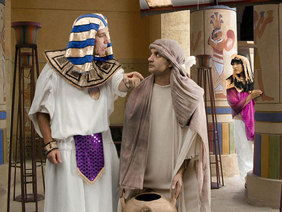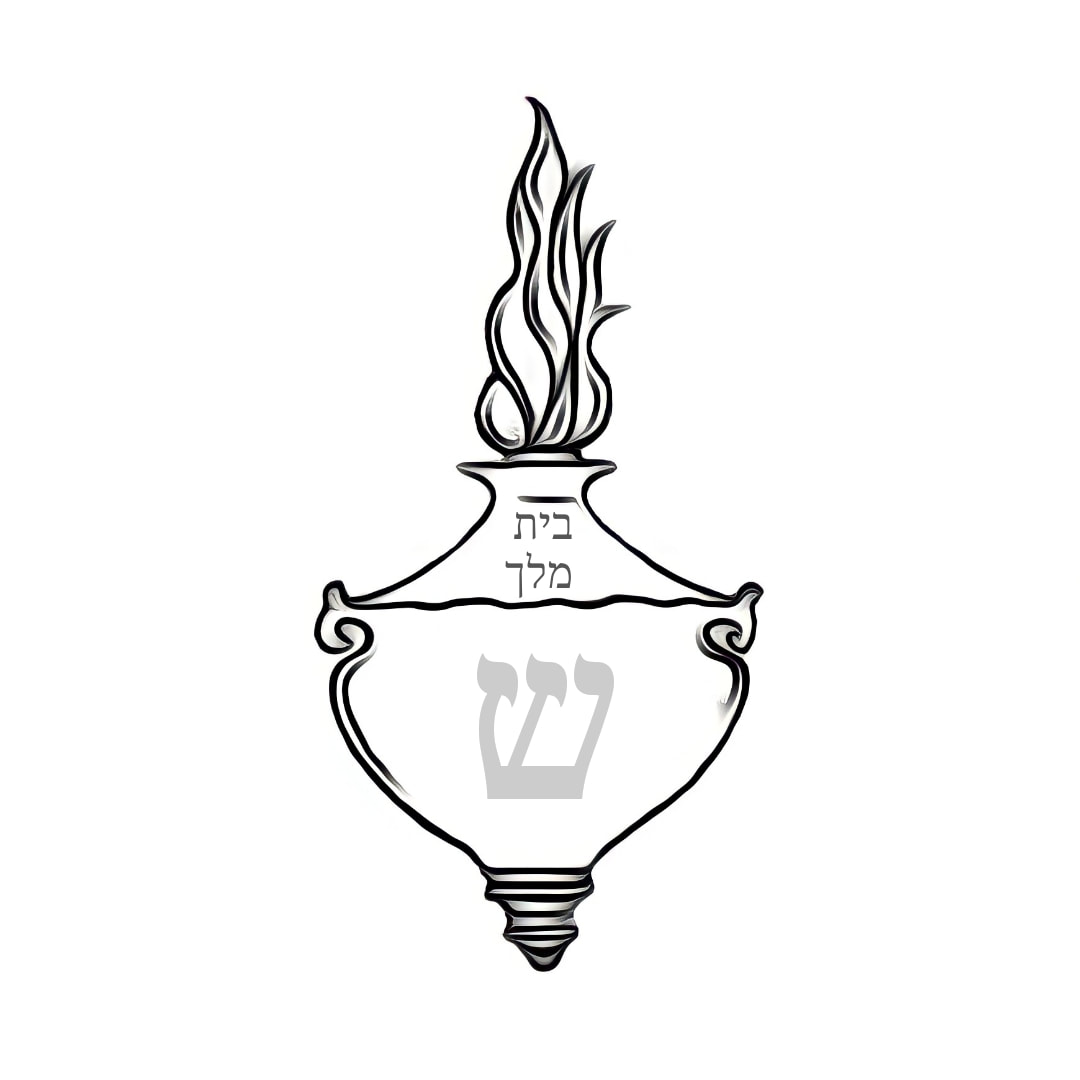Without HaShem the most prosperous of circumstances are worthless but with HaShem, even the worst forms of suffering and adversity are given value.  Introduction: In an age when success is measured in wealth and freedom, we are wise to stop and take notice of the story of Joseph. A story of adversity and of the stripping of personal wealth and freedom. It is in adversity that we discover the real meaning of success. If, like Joseph, we have trusted our journey to God, we will become successful even in our suffering. Not by possessing the wealth of this world but by carrying the honour of the world to come. 39:1 And Yosef (YHVH: Mercy adds) descended to Mitzray’mah (Double distress: Egypt). And was purchased by Potiphar (Belonging to the sun)—an official of Pharaoh (Great house), prince of the executioners of Mitzri (Double distress) Egypt—from the hand of the Yishm’eiliym (Ismaelites: hears God), who had brought him down there. We would be understanding these opening words well if we were to read them using the meanings of the names of the people and places concerned. “And Mercy was added as he descended into double distress…” We can also read: “Mercy was added to the land of double distress via the hand of one who heard from God and descended.” Both Potiphar and Pharaoh are thought to be titles rather than proper nouns. However, there is a possible linguistic and genealogical link between Potiphar and Ham the son of Noah. One translation of Potiphar reads “the fruit of Pot” meaning the son, grandson or great grandson of Pot (Genesis 10:6). In support of this proposed meaning is the fact that Egypt is said to be the land of Ham (Psalm 105:23). 2 And HaShem (YHVH: Mercy) was with Yosef (YHVH: Mercy adds). So he became a successful man in the house of his adonaiv (master), the Mitzri (Double distress: Egyptian). “Mercy was with Joseph, adding to him…” HaShem was with Joseph (Gen. 39:2, 3, 21, 23). The great Jewish martyr Stephen also emphasises this in his speech recorded in Acts 7:9-10. It is not that HaShem was ever not with Joseph. To the contrary, these words are a reminder to the reader, that God is with us and we are in Him. The fact that Joseph was employed as a house servant is evidence of the hand of God at work keeping him in a position of favour where his talents could be observed and his status elevated. Egyptians despised the Hebrew race, considering them to be dirty sheep herders. Even to the point of refusing to sit down to eat with them (Gen. 43:32). This means that both societal norms and deep seeded bigotry were overcome in order for Joseph to be accepted as a household servant. Particularly given the high position of Potiphar, who was the ruler over the executioners of Pharaoh. Seder Olam Rabba says that Joseph remained in Potiphar’s service for twelve months. Living near the pyramids built in the neighbourhood of Memphis (Seder Olam Rabba, c. 2. p. 5.). This is affirmed by Jablonski, who notes that to this day there is an historical site a hill, on which the house of Potiphar was built, and some of the debris from the bricks of the ancient home can still be examined (Jablonski de Terra Goshen, Dissert. 6. sect. 6.). 3 His adonaiv (master) saw that HaShem (YHVH: Mercy) was with him and that HaShem (YHVH: Mercy) made everything he set his hand to successful. We note that it was not Yosef’s talent or natural ability that brought him success. Rather it was because HaShem was with him. Potiphar and his wife and servants know that Yosef is a Hebrew (Genesis 39:14). Therefore, they attribute his success to the Deity of the Hebrews, though they don’t know HaShem themselves they do recognize the existence of the tribal gods of other nations. Thus they see HaShem as the tribal God of the Hebrews, and they are correct, He is. HaShem is both the tribal God of the Hebrews and the God of all things. Notice that the text allows the reading: “Joseph’s earthly lord saw that Mercy was with Joseph and that Mercy made everything that Joseph did successful.” 4 Yosef (YHVH: Mercy adds) found favour in his eyes, so he ministered to him (Potiphar) as a personal servant and he (Potiphar) appointed him (Yosef) over his household; everything that was his (Potiphar) he gave into his (Yosef’s) hand. Joseph y’sharet (ministered) to him. This is more than mere obligatory servitude. The Hebrew text infers a willing participation and an empathetic caring for the one being served. It seems that Joseph’s service, genuine thoughtfulness and integrity endeared him to Potiphar in such a way as to make him a trusted member of the household. The servant who is given care of the household becomes more than a piece of property, he becomes a member of the family. 5 From the time that he made him an overseer in his house and over everything that belonged to him, HaShem (YHVH: Mercy) blessed the Egyptian’s house because of Yosef (YHVH: Mercy adds); HaShem (YHVH: Mercy) blessing was on everything that belonged to him, in the house and in the field. 6 So he released everything he owned into Yosef’s (YHVH: Mercy adds) hand. With him in charge, he did not think about anything except the food he ate. And Yosef (YHVH: Mercy adds) was handsome in form and handsome in appearance. By virtue of the name which HaShem has given him, wherever Joseph goes HaShem adds. It is clear from the text that Potiphar trusted Joseph entirely and without reservation, leaving everything in his care just as Laban had left his flocks in the care of Jacob (Gen. 30:31-34). In the same way that HaShem blessed Laban because of Jacob (Gen. 30:27), He also blesses Potiphar because of Joseph. The progeny of Avraham continue to be a blessing to the nations (Gen. 12:2-3). Joseph is called yafeh (beautiful, handsome) in both form and appearance. He had a fit body and kept himself well groomed. The double use of the Hebrew yafeh emphasizes Joseph’s extreme good looks. It also offers a correlation between Joseph and his mother Rachel (Gen. 29:17). 7 And after these things, the adonaiv (master’s) wife made eyes at Yosef (YHVH: Mercy adds) and said, “Come, lie down with me!” Potiphar’s wife is said to “look after Joseph” or “place her eyes on him, gaze at him”. This is a euphemism intended to convey her lusting after him. “Lie down with me” is a euphemistic invitation to have sex. 8 But he adamantly refused. “Look,” he said to his adonaiv (master’s) wife, “my adonaiv (master) doesn’t think about anything in the house with me in charge, and everything that belongs to him he’s entrusted into my hand. The Hebrew, “vay’maei” infers that Joseph’s refusal was adamant. The staccato and emphatic Masoretic cantillation of the word is evidence of this ancient understanding of the text. This is also consistent with the fact that Potiphar’s wife continued to make numerous advances toward Joseph, who was either becoming weary of the temptation or annoyed by her constant harassing of him. 9 No one in this house is greater than I, and he has withheld nothing from me—except you, because you are his wife. So how could I commit ha-ra’ah ha-g’dolah (the evil that is the great) hazot (This one), and my sin would be against l’Elohiym (The Judge: God)?” Joseph implores Potiphar’s wife using a common sense moral argument and adds the warning of the judgement of God or the gods (as she may have understood the generic noun elohiym) in the hope that she will desist. What is certain is that Joseph understood that all he did was seen by God, Who was with him. 10 And when she spoke to Yosef (YHVH: Mercy adds), day after day, he refused to listen to her invitation to lie down beside her, to be with her. Potiphar’s wife was insatiable. Her lust for Joseph had obviously consumed her with wanton blindness for the consequences (Though, she seems to be sly enough to avoid any negative repercussions for herself). “When she spoke” can be understood to mean, “She attempted to coax him”. The phrase, “lie down beside her” can be taken literally or to mean “Sleep close to her”, perhaps in the next room. “To be with her” is again a euphemism for sexual intercourse. 11 And it came to pass, on one particular day, he came into the house to do his work, and none of the men of the house were there in the house. Iben Ezra suggests that the day in question was at least a year hence. Meaning that the repetition of the Hebrew phrasing in the previous verse denotes a lengthy process of taunting and seduction. 12 And she caught him by his garment saying, “Come, lie with me!” But he left his garment in her hand, fled and went outside. This is now the second time Joseph has been stripped of the garment of his authority. The first being the garment his brothers used to fool their father into thinking Joseph was dead. Ironically, the garment captured by Potiphar’s wife will also be used as false evidence. In both cases the garment of the righteous is taken by the wicked in order to further a dark agenda. However, it is also true to say that in both cases what was meant for evil is turned to good by an all loving, all knowing God of redemption. We are reminded of the stark contrast between the foolish actions of Judah in the previous chapter (where as a free man he gives away his garment of authority) and the stripping of the garment of Joseph, who though a slave, has lived and acted with integrity. It seems that God is more interested in prospering the spiritual health of His chosen servants than He is in seeing them lose sight of Him through the rose coloured glasses of wealth and freedom. The American dream it seems, couldn’t be further from the will of God. 13 When she saw that he had left his garment in her hand and fled outside, 14 she screamed to the men of her house and said to them, “Look! Someone brought a Hebrew (Ivri) man to us to mock us. He approached me to lie with me so I screamed out loud. 15 When he heard me raise my voice and scream, he left his garment with me, fled and went outside.” The phrase “Someone has brought” is translated as “Your lord has brought,” by Targum Yonatan In reference to Potiphar. Potiphar’s wife’s use of the phrasing “Hebrew man” is an attempt to invoke tribal bigotry and garner support from the Egyptian slaves and servants in her household. She adds, “To mock us” inferring that Joseph thinks himself above the other servants and slaves of the household. She is hoping that the household staff will aid her in testifying to her husband so that she can have Joseph punished for his refusal to satisfy her lust. The use of the term “Ivri” is rare. It was last used of Avram prior to his becoming Avraham (Gen. 14:13), where it reads Ha-Ivri (The Hebrew). It is no coincidence that this same phrasing is used in verse 17. There is soon to be a transformation where Joseph the servant of Hashem will become Joseph the Redeemer of Israel. In a very real sense, just as the Hebrews (Ivriym) could not have come into existence without Ha-Ivri, the Hebrew Avram, so too, they could not have continued to exist without Ha-Ivri, the Hebrew Joseph (Gen 39:17). 16 Then she kept the garment with her until his adonaiv (master) came home. 17 She spoke the same words to him saying, “The Hebrew (Ha-Ivri) slave that you brought us approached me to make a play thing of me. 18 When I raised my voice and screamed, he left his garment with me and fled outside.” Both here and in verse 15 Potiphar’s wife lies, saying “he left his garment with me” (inferring that Joseph disrobed of his own accord) rather than telling the truth: “I tore his garment off of him”. 19 Now when his adonaiv (master) heard the words his wife spoke to him saying, “Such are the things your slave did to me,” his anger burned. Rashi understands “Such are the things your slave did to me” to mean that Potiphar’s wife showed him how Joseph had tried to arose her. Potiphar’s anger may not have been directed entirely toward Joseph. It’s possible that he was angry with his wife. There is a good case for suggesting that Potiphar was aware of his wife’s sexual appetite and propensity for indiscretion, and that he was now angry because for appearances sake, he would have to imprison a trusted and valuable servant. 20 Then Yosef’s (YHVH adds) adonaiv (master) took him and put him in prison, the place where the king’s prisoners were confined. So there he was, in the prison. The fact that Potiphar escorted Joseph to the prison rather than having guards take him away, gives support to the idea that Potiphar did not believe his wife’s charges against Joseph. Midrash, Yefen Toar suggests that Potiphar explained to Joseph that if he failed to imprison him others would presume that his wife was regularly unfaithful and may even call into question the legitimacy of his children. We know from Genesis 40:3 that Joseph is imprisoned in the house of the Captain of the guard. That is, the house or barracks that Potiphar was captain over (Gen. 37:36). A place where royal prisoners were kept. Rather than place Joseph in a less desirable prison where prisoners rarely lived long due to harsh labour and poor conditions, Potiphar chose instead to put Joseph into the less taxing environment of the house of the captain of the guard. That is, where prisoners of higher social status serving time in anticipation of execution for treason or for lesser crimes against the crown, were kept. One of the alternate interpretations of the Hebrew translated “guard” is, “executioner”. The sages suggest that Joseph was in prison for a period of 10 to 12 years (Pirke Eliezer, c. 39; Seder Olam Rabba, c. 2. p. 5; Shalshalet Hakabala, fol. 3. 2), which is very likely given that he probably spent one year in Potiphar's house (Iben Ezra) and there were thirteen years between his being sold into Egypt, and his appearance before Pharaoh; he was seventeen (Gen. 37:2) when he was sold, and he was thirty (Gen. 41:46) when he stood before Pharaoh after being freed from prison. This allows for the 13 year difference between 17 and 30. However, it’s also possible that he spent more time in Potiphar's house and less time in prison. Regardless, Joseph spent a total of thirteen years from the time he was sold into Egypt until the time he was brought before Pharaoh. 21 And HaShem (YHVH: Mercy) was with Yosef (YHVH adds) and stretched out toward him kindness, goodness and faithfulness (Chesed) and gave him favour in the eyes of the keeper of the prison. The story of Joseph’s adversity in this chapter begins and ends with the words “HaShem was with Yosef”. Without HaShem the most prosperous of circumstances are worthless but with HaShem, even the worst forms of suffering and adversity are given value. The keeper of the prison in verse 21 is clearly subordinate to Potiphar who is captain over the entire guard. 22 The keeper of the prison entrusted into Yosef’s (YHVH adds) hand all the prisoners who were in the prison, so that everything that was done there, he was responsible for. Joseph is immediately shown favour and given a role of leadership over all the workings of the prison. Once again we must note that he is of a despised race and is perceived to be a criminal, and yet God’s hand is upon him to prosper him for the sake of his people Israel. Targum of Yonatan paraphrases the phrase “He was responsible for” as, “he (Joseph) commanded it to be done”. 23 The keeper of the prison did not concern himself with anything at all under his care, because HaShem (YHVH: Mercy) was with him (Yosef), and HaShem (YHVH: Mercy) made whatever he did successful. Finally, we note that Joseph was trusted by the keeper of the prison because Joseph had trusted HaShem and HaShem had made whatever he did successful. The message is clear: “Trust in HaShem with all your being and don’t rely on your own intellect; in all the ways you walk, in thought, speech and action, acknowledge Him, and He will make straight the paths you walk on and the direction in which you’re heading.” –Proverbs 3:5-6 (YBV) © Yaakov Brown 2017 Comments are closed.
|
Yaakov BrownFounder of the Beth Melekh International Messiah Following Jewish Community, Archives
February 2024
|


 RSS Feed
RSS Feed